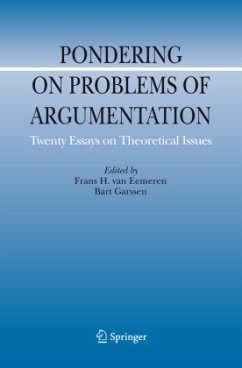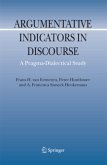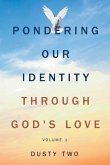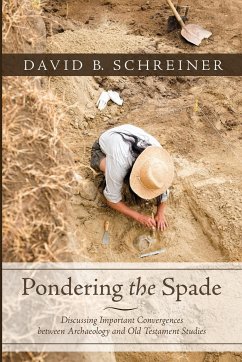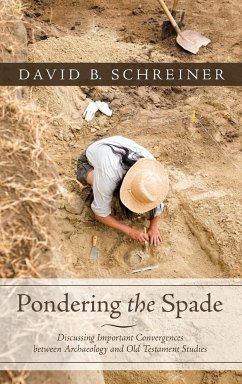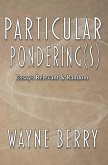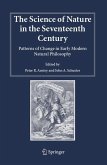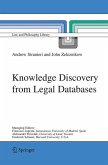Pondering on Problems of Argumentation is a collection of twenty essays brought together for anyone who is interested in theoretical issues in the study of argumentation. This collection of papers gives the reader an insightful and balanced view of the kind of theoretical issues argumentation theorists are currently concerned with. Because most of the perspectives on argumentation that are en vogue are represented, this volume provides a multidisciplinary and even interdisciplinary outlook on the current state of affairs in argumentation theory. Some of the contributions in Pondering on Problems of Argumentation deal with problems of argumentation that have been recognized as theoretical issues for a considerable time, like the problems of fallaciousness and identifying argumentation structures. Other contributions discuss issues that have become a focus of attention only recently or regained their prominence, such as the relationship between dialectic and rhetoric, and the strategic use of the argumentative technique of dissociation. In five separate sections papers are included dealing with argumentative strategies, problems of norms of reasonableness and fallaciousness, types of argument and argument schemes the structure of argumentation and rules for advocacy and discussion. In Pondering on Problems of Argumentation twenty essays are collected that deal with theoretical issues in the study of argumentation. Although the list of theoretical issues discussed in these essays is by no means comprehensive, the issues that are treated are certainly representative of the kind of problems the international community of argumentation scholars is pondering on at the moment. Characteristically, this international community includes scholars from different academic backgrounds, varying from classicists, philosophers, and linguists to logicians, and social scientists. These scholars favour different approaches to argumentation, varying from formal and dialecticalapproaches to informal and rhetorical pragmatic approaches. Because most of the perspectives on argumentation that are en vogue are represented, this volume provides a multidisciplinary and as far as different approaches are combined even interdisciplinary outlook on the current state of affairs in argumentation theory.
In all contributions to Pondering on Problems of Argumentation the emphasis is on sharing theoretical reflections on argumentation rather than presenting the results of empirical experiments, qualitative analysis, case studies, or applications of theoretical instruments. Some of the contributions deal with problems of argumentation that have been recognized as theoretical issues for a considerable time, like the problems of fallaciousness and identifying argumentation structures. Other contributions discuss issues that have become a focus of attention only recently or regained their prominence, such as the relationship between dialectic and rhetoric, and the strategic use of the argumentative technique of dissociation. In line with new developments that have taken place, a new input to the theoretical study of argumentation is offered by researchers coming from disciplines that have matured during the past decades, such as pragmatics and discourse analysis. All the same, scholars stemming from long-established disciplines, such as the classics, also play a part in the renewal by shedding a new light on the problems of argumentation. For all contributions goes that their authors really ponder on problems of argumentation without claiming to have found the final theoretical solution to these problems. As it should be in the study of argumentation, all essays that are presented here are fully open to criticism.
In all contributions to Pondering on Problems of Argumentation the emphasis is on sharing theoretical reflections on argumentation rather than presenting the results of empirical experiments, qualitative analysis, case studies, or applications of theoretical instruments. Some of the contributions deal with problems of argumentation that have been recognized as theoretical issues for a considerable time, like the problems of fallaciousness and identifying argumentation structures. Other contributions discuss issues that have become a focus of attention only recently or regained their prominence, such as the relationship between dialectic and rhetoric, and the strategic use of the argumentative technique of dissociation. In line with new developments that have taken place, a new input to the theoretical study of argumentation is offered by researchers coming from disciplines that have matured during the past decades, such as pragmatics and discourse analysis. All the same, scholars stemming from long-established disciplines, such as the classics, also play a part in the renewal by shedding a new light on the problems of argumentation. For all contributions goes that their authors really ponder on problems of argumentation without claiming to have found the final theoretical solution to these problems. As it should be in the study of argumentation, all essays that are presented here are fully open to criticism.
From the reviews:
"There is a little something for almost any serious student or scholar of argumentation to chew on in this volume. ... provide an important snapshot of theoretical issues scholars grapple with in the first decade of the twenty-first century. ... recommend this book to anyone looking for an introduction to the breadth and depth of contemporary argumentation scholarship. ... helpful in introducing a variety of approaches to argumentation scholarship that one might not normally come across when conducting research from one's own disciplinary vantage point." (Harry Weger Jr., Argumentation, Vol. 25, 2011)
"There is a little something for almost any serious student or scholar of argumentation to chew on in this volume. ... provide an important snapshot of theoretical issues scholars grapple with in the first decade of the twenty-first century. ... recommend this book to anyone looking for an introduction to the breadth and depth of contemporary argumentation scholarship. ... helpful in introducing a variety of approaches to argumentation scholarship that one might not normally come across when conducting research from one's own disciplinary vantage point." (Harry Weger Jr., Argumentation, Vol. 25, 2011)

